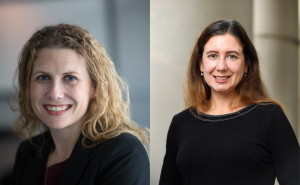How to Prevent Social Isolation from Making Loneliness Worse
One of COVID-19’s harshest ironies: Just when we need each other more, we’re being forced apart.
America had a chronic loneliness problem before COVID-19, but the battle to stop the spread of the disease is poised to dramatically increase the risk for loneliness, says 19th U.S. Surgeon General Vivek Murthy. Social distancing, while a vital strategy to stem the COVID-19 pandemic, can worsen people’s sense of isolation.
“We find ourselves with a silent but common challenge of loneliness that people are struggling with all over the country and all over the world. And now on top of that, we're being asked to pull back from life-sustaining interactions with other people,” says Murthy, now a Distinguished Policy Scholar in the Department of Health Policy and Management at the Johns Hopkins Bloomberg School of Public Health.
Murthy knows loneliness. He experienced it as a child and saw its pernicious effects on patients when he was a physician, as he described in a recent Hopkins Bloomberg Public Health magazine article. While on a 2014 listening tour with people across the U.S. after being named Surgeon General by President Barack Obama, Murthy was surprised how frequently loneliness came up in conversations.
More than 20% of Americans reported that they often or always feel lonely in a 2018 Kaiser Family Foundation study. Loneliness has been linked to a 26% increased risk for premature death, noted a 2015 Perspectives on Psychological Science article.
Data like these and his own observations pushed Murthy to write the soon-to-be-released book, Together: The Healing Power of Human Connection in a Sometimes Lonely World (HarperCollins).
Faced with the necessity of social distancing as COVID-19 continues to spread, Americans can take some simple steps to ameliorate their loneliness and others’, Murthy says.
- First, spend at least 15 minutes each day talking with or writing to a loved one. “15 minutes doesn't seem like a lot of time, but when done consistently that small amount of time can make a big difference in how connected we feel,” Murthy says.
- Second, dial down distractions and give undivided attention to people. Refreshing your social media feed or scrolling through emails is obvious to the person you’re speaking with. “The cost to our relationships is significant. It impacts the quality of the interaction, and ultimately the quality of the relationship,” he says.
- Third, find ways to serve others. “We can call a neighbor ...and check on them to make sure they're doing okay. We can drop food off to somebody,” Murthy says. “We can write to people to let them know ... that we know, that they're going through a tough time and that we're thinking of them. These are small but powerful ways in which we can seek to serve others.”
Actions like these can be especially valuable for the more than 35 million Americans who live alone. Family, friends, and coworkers should make a special effort to stay connected with them. Another group who need help in the COVID-19 era: The quarantined (people believed to have been exposed to someone infected) and isolated (people who have been infected and need to be prevented from infecting others).
Such efforts combat the chronic loneliness that can pull one inward and insidiously chip away at one’s sense of self. “You start to believe that the reason that you're lonely is because you're not likable or because you're not lovable,” Murthy says. Serving others shifts the focus outward, he says, and reminds people of their own value and ability to contribute to the world.
Even if you’re staying at home, Murthy says you can still call a neighbor to check in with them, take food to someone who isn’t able to go out, or write a note to a friend. “These are small but powerful ways in which we can seek to serve others,” he says.
Another way to fight loneliness: Allow people to help you. Some people have a hard time accepting help, but it can be affirming for both, Murthy says. “There is something very powerful about allowing others to help you. It requires you to be vulnerable in a moment, but the truth is that all of us are vulnerable, especially right now,” he explains. “Both helping others and now allowing yourself to be helped … ultimately strengthen your connection with others.”
Brian W. Simpson, MPH, is editor-in-chief of Hopkins Bloomberg Public Health magazine and Global Health NOW.



